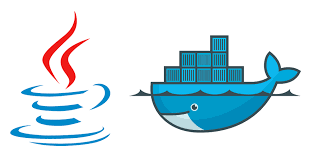In today’s technology-driven world, data reigns supreme. It powers decision-making, fuels innovation, and is the backbone of many businesses. For those looking to work with data, two exciting roles often come up—data scientist and data engineer. This blog will explore these roles, comparing their responsibilities, skills, and challenges to unravel the debate on which is harder. Whether you’re a tech enthusiast, a data science student, or an IT professional, this post will provide valuable insights as you consider a career in data.
Understanding the Roles
Data Scientist Demystified
Data scientists are often depicted as modern-day wizards who use analytics to unveil hidden patterns within vast datasets. Their primary responsibility is to extract meaningful insights that can drive strategic decisions. To do this, they utilize advanced statistical models, machine learning algorithms, and data visualization techniques. A key skill for a data scientist is the ability to translate complex data findings into actionable business strategies, making them indispensable across industries.
Data scientists require a deep understanding of domain knowledge relevant to the industry they work in. This expertise allows them to ask the right questions and focus on deriving insights that are not only technically sound but also contextually relevant. Their role is holistic, blending technical prowess with business acumen, making them a bridge between data and business decision-makers.
Unveiling the Data Engineer’s World
Data engineers, on the other hand, are the architects of data infrastructure. They design, build, and maintain systems that process and store massive amounts of data. Their work ensures that data flows seamlessly across the organization, allowing data scientists and analysts to access clean, reliable datasets. This involves working with data pipelines, databases, and ensuring data security and integrity.
A data engineer’s role is heavily focused on the technical aspects of data management, requiring expertise in data architecture and engineering principles. They often deal with the complexities of big data technologies and cloud platforms, making them essential in today’s data-centric landscape. Their contribution is foundational, providing the structure upon which data science can thrive.
Skill Sets Required
Technical Mastery in Data Science
The skill sets required for data scientists are diverse and multifaceted. They need proficiency in programming languages such as Python and R, which are used for data manipulation and analysis. Additionally, expertise in statistical analysis and machine learning is crucial, enabling them to build predictive models and perform sophisticated data exploration.
Data scientists also rely on tools like TensorFlow for machine learning, Tableau for visualization, and SQL for database querying. These tools allow them to handle complex datasets and extract insights that drive business outcomes. The technical landscape for data scientists is continually evolving, requiring them to stay updated with the latest advancements in AI and analytics.
Engineering Excellence in Data
For data engineers, the emphasis is on engineering skills and tools that enable the construction and optimization of data systems. Proficiency in programming languages like Java, Scala, and Python is essential for building data pipelines and ETL (extract, transform, load) processes. They also need to be adept with database technologies like PostgreSQL and NoSQL databases such as MongoDB.
Data engineers frequently work with big data technologies such as Apache Hadoop and Apache Spark, which require a solid understanding of distributed computing and data processing. Cloud platforms like AWS, Azure, and Google Cloud are integral to their work, providing scalable solutions for data storage and processing. The technical demands on data engineers are rigorous, requiring a comprehensive understanding of both hardware and software components.
Challenges Faced
Navigating Data Science Hurdles
Data scientists encounter several challenges in their projects, ranging from data quality issues to model interpretability. Ensuring the accuracy and reliability of data is paramount, as flawed data can lead to incorrect insights. Additionally, data scientists often grapple with the complexities of model selection and tuning, requiring a deep understanding of various algorithms and their application.
Another significant challenge is communicating findings to non-technical stakeholders. Translating complex analyses into actionable recommendations necessitates strong communication skills. Data scientists must also stay abreast of ethical considerations surrounding data privacy and bias in models, ensuring their work aligns with ethical standards.
Tackling Data Engineering Obstacles
Data engineers face their own set of challenges, particularly in building and maintaining scalable data infrastructures. They must address issues related to data latency, ensuring real-time data availability for analytics. Managing the complexities of data integration from multiple sources and formats adds to the intricacies of their work.
Security is a critical concern for data engineers, as they must implement robust measures to protect sensitive data from breaches. Additionally, the rapid pace of technological advancements in data engineering tools and platforms requires them to continuously learn and adapt. Balancing system performance with cost efficiency further complicates their role, demanding strategic problem-solving skills.
Educational Background and Pathways
Academic Foundations for Data Scientists
Data scientists typically have a strong academic background in fields such as computer science, mathematics, or statistics. Many hold advanced degrees like a master’s or Ph.D., which equip them with the analytical and research skills needed for complex data analysis. Courses in data mining, machine learning, and statistical modeling are crucial components of their education.
However, traditional academic pathways are not the only route to becoming a data scientist. Bootcamps and online courses offer intensive, hands-on training in data science tools and techniques. These programs are often tailored to provide practical experience and industry-relevant skills, making them an attractive option for aspiring data scientists seeking a faster entry into the field.
Engineering Education for Data Engineers
Aspiring data engineers often pursue degrees in computer engineering, information technology, or related disciplines. Their coursework includes subjects like database management, distributed systems, and data architecture, providing a solid foundation for their role. Certifications in cloud platforms and big data technologies further enhance their qualifications.
Similar to data science, alternative pathways such as coding bootcamps and online certifications are available for data engineering. These programs emphasize practical skills and real-world project experience, enabling participants to build technical competence in a shorter time frame. Continuous learning through online resources and industry workshops is essential to keep pace with evolving technologies.
Career Trajectory and Demand
Data Scientists in Demand
Data scientists are in high demand across various industries, from finance to healthcare to e-commerce. Their ability to derive actionable insights from data makes them valuable assets for organizations seeking a competitive edge. The job market for data scientists is projected to grow, with increasing opportunities in emerging fields like AI and IoT.
Career advancement for data scientists often involves transitioning to roles like senior data scientist, data science manager, or chief data officer. Specializing in niche areas like natural language processing or computer vision can also open new doors for career growth. The versatility of data science skills allows professionals to explore diverse industries and applications.
Rising Opportunities for Data Engineers
Data engineers are equally sought after, as organizations increasingly recognize the importance of robust data infrastructure. Their expertise in data architecture and pipeline development is crucial for supporting analytics and business intelligence initiatives. The demand for data engineers is expected to rise as businesses continue to invest in big data solutions.
Career paths for data engineers may lead to positions such as data architect, data management director, or CTO. Specializing in areas like cloud computing or real-time data processing can enhance career prospects. The evolving landscape of data engineering offers ample opportunities for professionals to contribute to innovative projects and drive technological advancements.
Conclusion
In the debate over whether a data scientist or data engineer has the tougher role, it’s clear that both positions present their unique challenges and rewards. Data scientists excel in extracting insights and driving business decisions, while data engineers build the backbone of data infrastructure essential for these insights to be realized. The difficulty of each role ultimately depends on individual strengths, interests, and career goals.
For those considering a career in data, it’s important to align your skills and passion with the role that best suits you. Both data science and data engineering play vital roles in the data ecosystem, offering exciting opportunities for growth and impact. Whether you’re drawn to the analytical challenges of data science or the technical intricacies of data engineering, there’s a place for you in the dynamic world of data.
As you explore your options, remember that continuous learning and adaptability are key to success in this rapidly evolving field. Engage with the data community, take advantage of educational resources, and stay curious about the possibilities that data holds. The future of data is bright, and your contributions can help shape the innovations of tomorrow.
























